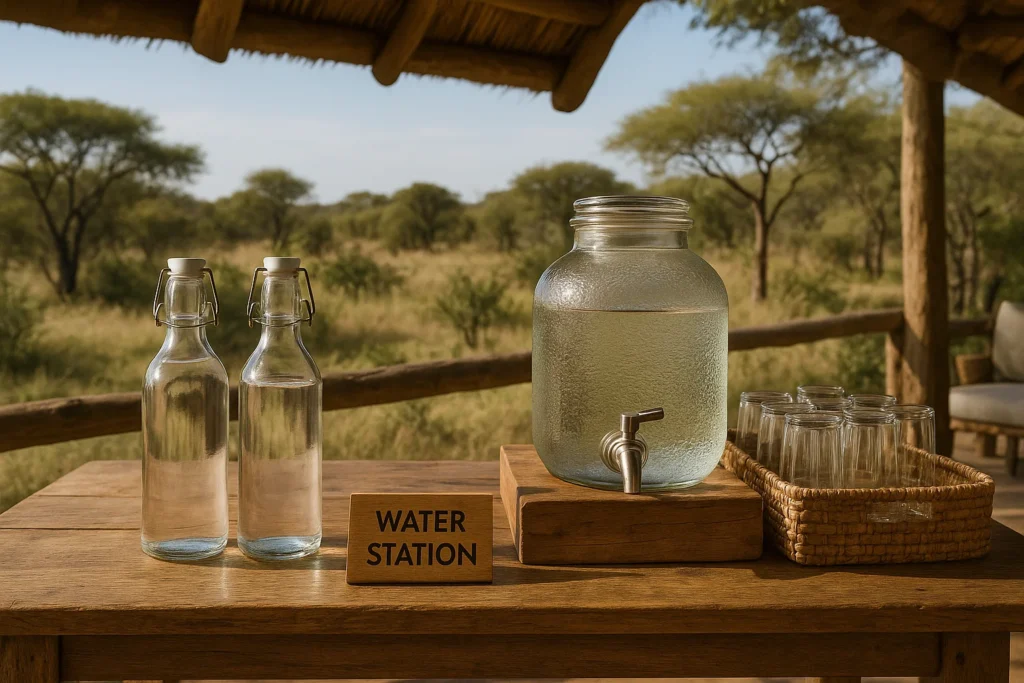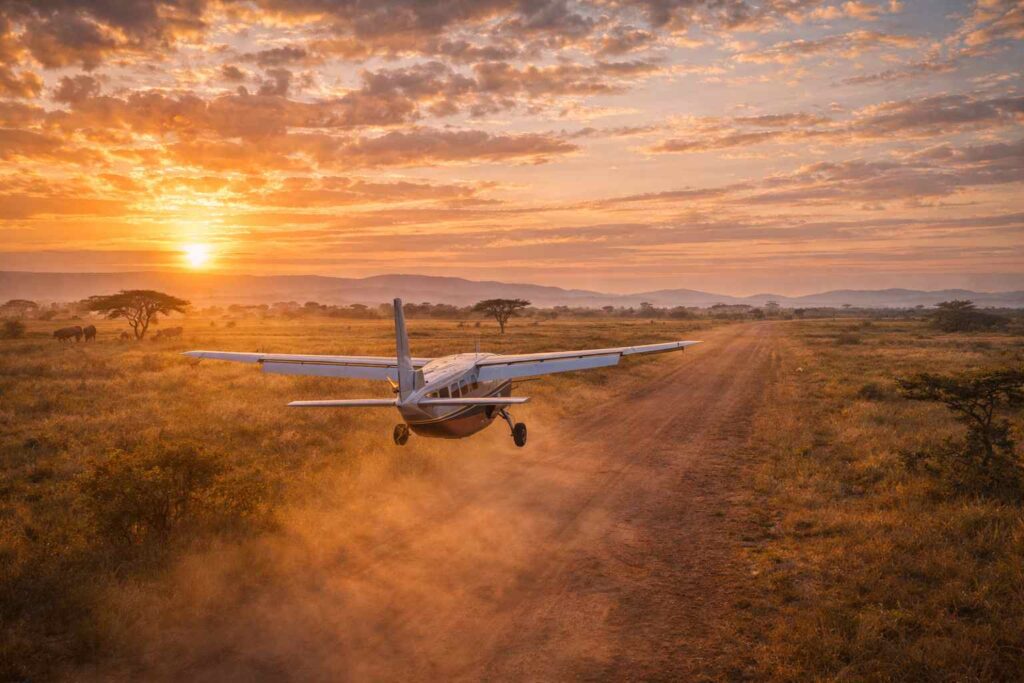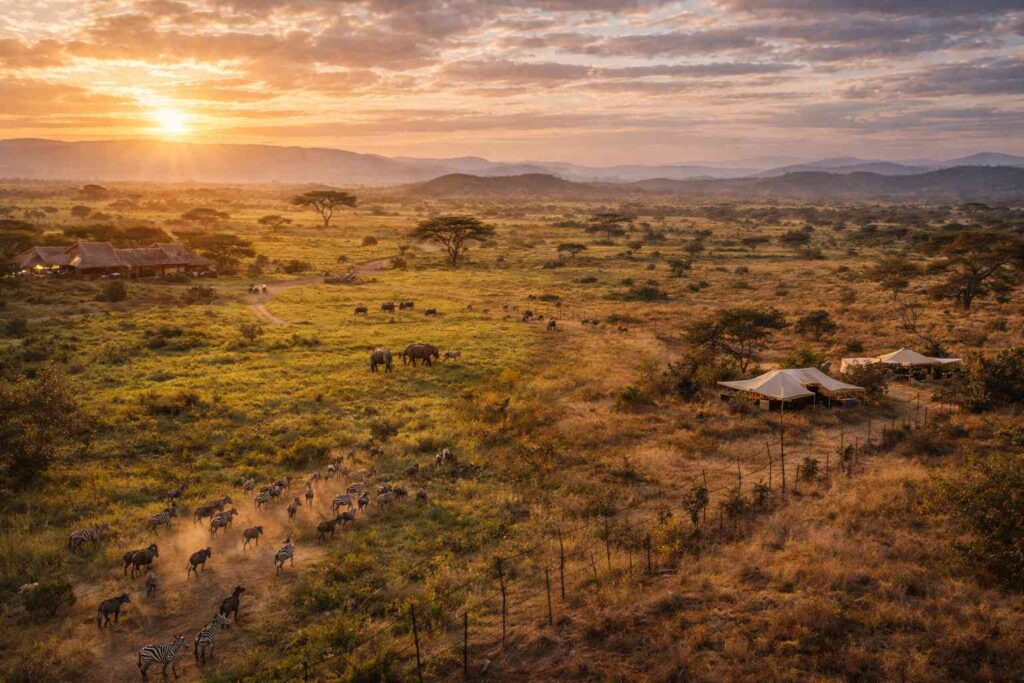Water safety is one of the first concerns for safari travelers. You naturally wonder: Is the tap water in lodges safe to drink? The answer is: It depends. It depends on the country, the lodge’s infrastructure, local water treatment, and how remote your location is. In many safari destinations, tap water is not reliably safe; lodges often use filtration, purification, or bottled water for guests. This article breaks it down, gives you rules of thumb, and helps you plan wisely.
Why water safety is a special concern on safari
- Remoteness and infrastructure limitations: Many lodges are deep in reserves or wilderness, far from municipal treatment plants.
- Variation in standards: Water quality varies greatly between cities and remote camps.
- Traveler sensitivity: Your body may react to microbes in the water that locals tolerate.
- Hygiene risks beyond ingestion: Ice, brushing teeth, washing produce—all can be exposure points.
- Health guidelines: Authorities like the CDC recommend avoiding untreated tap water in many safari regions.
General guideline: Assume no, unless proven otherwise
- Most safari camps provide bottled or filtered/treated water for drinking and hygiene.
- Don’t assume taps are safe—ask explicitly or look for posted notices.
- Use bottled or treated water for drinking, brushing teeth, and making drinks.
- Avoid ice cubes unless you’re certain they’re made from purified water.
- Showering is generally safe, but avoid ingesting any water.
Country-by-country snapshots
| Country | Tap Water Safety | Lodge Practices | Notes |
|---|---|---|---|
| South Africa | Tap water in urban areas often safe | Lodges often still offer bottled/filtered water | Municipal supply is good, but pipes/storage may introduce risk |
| Kenya | Tap water not safe for travelers | Bottled or filtered water always provided | Use safe water even for teeth brushing |
| Tanzania | Tap water quality inconsistent | Camps treat or supply bottled water | Turbidity increases in rainy season |
| Botswana | Borehole or groundwater used | Camps filter or treat on-site | Some minerals may affect taste or stomach |
| Namibia | Groundwater in use | Usually filtered at lodge level | Ask each lodge specifically |
| Uganda / Rwanda | Generally unsafe | Safe water always supplied at lodges | Purify if unsure |
How to assess a lodge’s water safety
Ask the lodge or guide:
- Is the tap water filtered, UV-treated, or chlorinated?
- Are storage tanks cleaned regularly?
- Is drinking water offered separately?
- Is there signage about water use?
- Can I refill from a treated source?
If answers are vague or uncertain, treat tap water as unsafe.
Water safety packing list
- Portable water filter (UV, carbon, or squeeze type)
- Water purification tablets (chlorine dioxide)
- Reusable water bottles (with filtration if possible)
- Electrolyte powder for hydration
- Zip bag labeled “safe water only”
Daily habits to reduce risk
- Drink only bottled or known filtered water
- Use safe water for brushing teeth
- Avoid raw produce washed with tap water
- Skip ice unless you’re sure of its source
- Refill water only from clearly marked purified stations
Final thoughts
In short: don’t drink tap water at safari lodges unless you’re absolutely sure it’s purified. Water quality may vary within a country and even between camps. Play it safe, ask questions, and bring your own purification backup to avoid illness in the bush.
FAQs
Sometimes, but bottled water is usually still offered. Ask your lodge directly.
Only if the lodge confirms it’s safe. Otherwise, use bottled or filtered water.
Most do, especially in East and Southern Africa. Some may also offer refillable treated water.
Only if you confirm it’s made from purified or bottled water.
Stick strictly to bottled/filtered water and avoid raw foods. Carry a purifier as backup.






